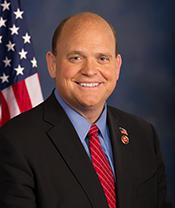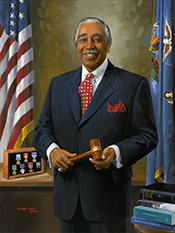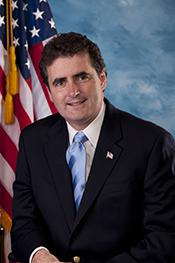0
Defending Public Safety Employees' Retirement Act
4/24/2023, 8:39 PM
Congressional Summary of HR 2146
Defending Public Safety Employees' Retirement Act
(Sec. 2) This bill amends the Internal Revenue Code, with respect to the exemption from the 10% penalty tax on early distributions from a government retirement plan for qualified public safety employees who have reached age 50, to expand the exemption to include specified federal law enforcement officers, customs and border protection officers, federal firefighters, and air traffic controllers who similarly have reached age 50.
The bill also eliminates the restriction that only distributions from governmental plans that are defined benefit plans qualify for the exemption, thus allowing an exemption of distributions from defined contribution plans and other types of governmental plans. Additionally, early distributions are not treated as a modification of substantially equal payments for purposes of determining an increase in the penalty tax.
The amendments made by this bill apply to distributions made after December 31, 2015.
(Sec. 3) The budgetary effects of this Act shall not be entered on either PAYGO scorecard maintained under the Statutory Pay-As-You-Go Act of 2010.
TITLE I--TRADE PROMOTION AUTHORITY
Bipartisan Congressional Trade Priorities and Accountability Act of 2015
(Sec. 102) Declares the overall trade negotiating objectives of the United States with respect to any agreement with a foreign country to reduce or eliminate existing tariffs or nontariff barriers of that country or the United States that are unduly burdening and restricting U.S. trade. Includes among such objectives:
- more open, equitable, and reciprocal market access;
- the reduction or elimination of trade barriers and distortions that are directly related to trade and investment and that decrease market opportunities for U.S. exports or otherwise distort U.S. trade;
- stronger international trade and investment disciplines and procedures, including dispute settlement;
- enhanced U.S. competitiveness;
- protection of the environment;
- respect for worker and children rights consistent with International Labor Organization core labor standards;
- equal access of small businesses to international markets; and
- religious freedom.
Declares the principal trade negotiating objectives of the United States with respect to:
- goods and services;
- agriculture;
- foreign investment;
- intellectual property;
- digital goods and services, as well as cross-border data flows;
- regulatory practices;
- state-owned and state-controlled enterprises;
- localization barriers to trade;
- labor and the environment;
- currency and foreign currency manipulation;
- the World Trade Organization (WTO) and multilateral trade agreements;
- trade institution transparency;
- anti-corruption;
- dispute settlement and enforcement;
- trade remedy laws;
- border taxes;
- textile negotiations;
- commercial partnerships, especially with Israel; and
- good governance, transparency, operation of legal regimes, and the rule of law of U.S. trading partners.
Directs the President, in order to maintain U.S. competitiveness in the global economy, to engage in specified capacity building activities with respect to foreign countries that seek to enter into trade agreements with the United States.
(Sec. 103) Authorizes the President to enter into trade agreements with foreign countries for the reduction or elimination of tariff or nontariff barriers before July 1, 2018, or before July 1, 2021, if trade authorities procedures are extended to implementing bills (congressional approval) with respect to such agreements.
Authorizes the President to proclaim necessary or appropriate modifications or continuation of any existing duty, continuation of existing duty-free or excise treatment, or additional duties to carry out any such agreement.
(Sec. 104) Subjects trade agreements to congressional oversight and approval, consultations, and access to information requirements.
Requires the convening each Congress of the House and the Senate Advisory Groups on Negotiations to consult with and advise the United States Trade Representative (USTR) regarding the formulation of specific objectives, negotiating strategies and positions, the development of the applicable trade agreement, and compliance and enforcement of the negotiated commitments under the trade agreement.
Amends the Trade Act of 1974 to establish within the Office of the USTR the position of Chief Transparency Officer to consult with Congress on transparency policy, coordinate transparency in trade negotiations, engage and assist the public, and advise the USTR on transparency policy.
(Sec. 105) Specifies presidential notifications, consultations, reports, and other actions and their deadlines that must take place for any trade agreement to enter into force.
Specifies requirements for negotiations regarding agriculture, the fishing industry, and textiles.
(Sec. 106) Prescribes procedures for resolutions of disapproval in the House and the Senate before the President enters into any trade agreement.
Declares that trade authorities procedures shall not apply to any implementing bill submitted with respect to a trade agreement:
- if both chambers of Congress agree by a certain deadline to a procedural disapproval resolution for lack of notice or consultations, and
- with a country which does not fully comply and is not making significant efforts to comply with minimum standards for the elimination of human trafficking ("tier 3" country).
(Sec. 107) Prescribes requirements for the treatment of trade agreements entered into under the auspices of the WTO or with the Trans-Pacific Partnership countries or the European Union which result from negotiations commenced before enactment of this Act.
(Sec. 108) Declares that any provision of a trade agreement that is inconsistent with any U.S. laws shall be null and void.
(Sec. 109) Expresses the sense of Congress that the USTR should facilitate participation of small businesses in the trade negotiation process.





